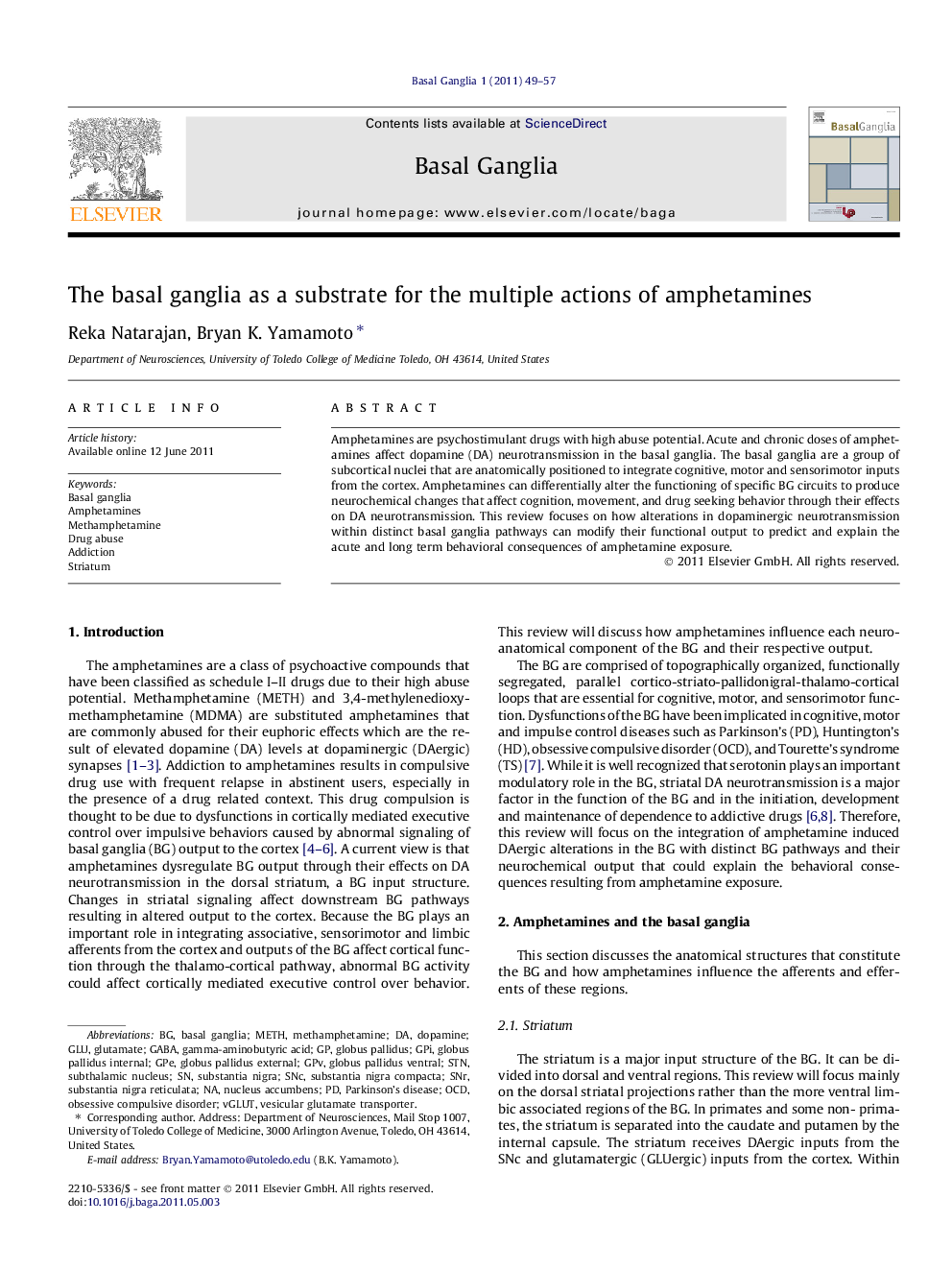| Article ID | Journal | Published Year | Pages | File Type |
|---|---|---|---|---|
| 3036074 | Basal Ganglia | 2011 | 9 Pages |
Amphetamines are psychostimulant drugs with high abuse potential. Acute and chronic doses of amphetamines affect dopamine (DA) neurotransmission in the basal ganglia. The basal ganglia are a group of subcortical nuclei that are anatomically positioned to integrate cognitive, motor and sensorimotor inputs from the cortex. Amphetamines can differentially alter the functioning of specific BG circuits to produce neurochemical changes that affect cognition, movement, and drug seeking behavior through their effects on DA neurotransmission. This review focuses on how alterations in dopaminergic neurotransmission within distinct basal ganglia pathways can modify their functional output to predict and explain the acute and long term behavioral consequences of amphetamine exposure.
► Amphetamines are addictive drugs that affect basal ganglia function through changes in dopamine neurotransmission. ► Amphetamine induced alterations to the basal ganglia can disrupt sensorimotor and cognitive function. ► Amphetamine dependent basal ganglia dysfunction can cause enhancement of drug taking, drug seeking, and cause neurotoxicity.
